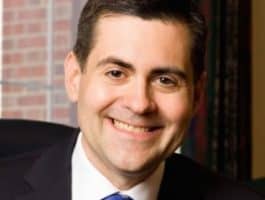
Reaching Out to the Orphan, Part 2
The cost of adoption and fatherlessness weighs particularly hard on the next generation of men. Rick Warren, Dennis Rainey, Jedd Medefind and Russell Moore continue their discussion, in a special edition of FamilyLife Today recorded live at the Orphan Summit.
Show Notes
About the Host
About the Guest
-
The cost of adoption and fatherlessness weighs particularly hard on the next generation of men. Rick Warren, Dennis Rainey, Jedd Medefind and Russell Moore continue their discussion, in a special edition of FamilyLife Today recorded live at the Orphan Summit.
-
Dave and Ann Wilson
Dave and Ann Wilson are hosts of FamilyLife Today®, FamilyLife’s nationally-syndicated radio program. Dave and Ann have been married for more than 38 years and have spent the last 33 teaching and mentoring couples and parents across the country. They have been featured speakers at FamilyLife’s Weekend to Remember® marriage getaway since 1993 and have also hosted their own marriage conferences across the country. Cofounders of Kensington Church—a national, multicampus church that hosts more than 14,000 visitors every weekend—the Wilsons are the creative force behind DVD teaching series Rock Your Marriage and The Survival Guide To Parenting, as well as authors of the recently released book Vertical Marriage (Zondervan, 2019). Dave is a graduate of the International School of Theology, where he received a Master of Divinity degree. A Ball State University Hall of Fame quarterback, Dave served the Detroit Lions as chaplain for 33 years. Ann attended the University of Kentucky. She has been active alongside Dave in ministry as a speaker, writer, small-group leader, and mentor to countless wives of professional athletes. The Wilsons live in the Detroit area. They have three grown sons, CJ, Austin, and Cody, three daughters-in-law, and a growing number of grandchildren.
-

Dennis Rainey
Dennis Rainey cofounded FamilyLife®, a ministry of Cru®. Since the organization began in 1976 through 2017, Dennis’ leadership enabled FamilyLife to grow into a dynamic and vital ministry in more than 109 countries around the world helping families discover the joy God intended for their relationships with God, spouse, and kids. Dennis has authored or co-authored more than 35 books, including best-selling Moments Together for Couples and Staying Close and has received two Golden Medallion...more
Jedd Medefind
Jedd believes that love for orphans transforms. Both personally and through the example of countless others, he’s seen that lives are turned upside-down when Christians reflect God’s heart for orphans through adoption, foster care and global orphan care. This kind of love transforms not only orphans, but also those who open hearts and homes to them. Churches can be transformed as well, moving the entire community beyond self-focused religion to self-giving faith. Finally, when a watching...more
Rick Warren
Dr. Rick Warren is the founding pastor of Saddleback Church, leader of a 30,000 member congregation in Lake Forest, California and local California campuses and in major cities around the world. As a theologian, he has lectured at many universities and seminaries including Oxford, Cambridge, Harvard, and University of Judaism. As a global strategist, he speaks to world leaders and organizations including United Nations, US Congress, Davos Economic Forum, TED and Aspen Institute. Rick has also f...more
Russell Moore
Russell Moore is President of the Ethics & Religious Liberty Commission of the Southern Baptist Convention. Prior to his election to this role in 2013, Moore served as provost and dean of The Southern Baptist Theological Seminary, where he also taught as professor of theology and ethics. A widely-sought cultural commentator, Dr. Moore has been recognized by a number of influential organizations. The Wall Street Journal has called him “vigorous, cheerful, and fiercely articulate” whi...more
The cost of adoption and fatherlessness weighs particularly hard on the next generation of men.
Reaching Out to the Orphan, Part 2
Bob: Rick Warren has a heart and a burden for the orphan. One of the reasons why is probably because of the woman he is married to.
Rick: I heard Kay say this—a couple of years ago—she was speaking at Catalyst. It was brilliant. She said, “Just ask the question, ‘God, are you calling me to adopt?’” That’s all she said, “I just want you to go home and ask the question, ‘God, are you calling me to adopt?’” That’s brilliant.
She went back. She was invited back to Catalyst this year. Seven young couples—guys all in their 20s—came up and said, “Meet our adopted kid,” because of that day—seven young couples that adopted because she simply said, “Ask the question.”
Bob: This is FamilyLife Today for Wednesday, September 26th. Our host is the President of FamilyLife®, Dennis Rainey, and I'm Bob Lepine. We’re going to hear from four Christian leaders today about how men need to step up when it comes to the needs of orphans. Stay tuned.
And welcome to FamilyLife Today. Thanks for joining us on the Wednesday edition.
Dennis: Bob, I so enjoyed reading the Proverb—Proverbs 27:17—that I want to do it again; alright? [Laughter] Proverbs 27:17—listen up! “Iron sharpens iron as one man sharpens another.”
It is time for men to have an edge. It’s time for us to be sharp. What you’re going to hear on the broadcast today is going to sharpen you. It’s going to shape you. It’s going to challenge you to step up and be a difference-maker because there are literally hundreds of thousands of orphans in America—in the foster care system—and there are millions of orphans, worldwide. There are a ton of orphans in America who are growing up in fatherless homes who need us, as men, to step up and step into their lives.
Bob: Yes, you’ve been calling men to step up for awhile now—but our focus, this week, is on calling men to step up in the area of the fatherless and to have a father’s heart for those who don’t have a dad and don’t have a mom—for the orphan.
We were a part of an event, back in the spring. The Christian Alliance for Orphans hosted the Orphans Summit. This was the eighth annual Orphans Summit. We were out for that event. There was a panel discussion that was convened with you, Rick Warren, Russell Moore from Southern Seminary, and Jedd Medefind, who is the head of the Christian Alliance for Orphans, talking about, “How do we get men engaged on this issue?” and strategizing together.
I think there were a couple hundred men in the room as we thought through, “How do we get guys to engage around this issue and to step up?” We’re going to hear Part Two of the panel discussion that took place out at Saddleback Church at the Christian Alliance for Orphans Summit, back in May.
[Recorded audio]
Bob: Rick, at Saddleback, you’re calling your members to get involved in a variety of ways—Kingdom agendas. The orphan is going to be a concern for a percentage. Is it right that it ought to be for a percentage as opposed to for the whole? It seems overwhelming for all of us to get involved in every aspect of the peace plan; right?
Rick: Well, yes, yes. There’s no doubt about it. God calls us to different causes. One of the problems that we often do is gift projection, “You must feel as passionately about something as I do.”
Dennis: Right.
Rick: Well, that’s just not true. God gives everybody a different shape. We call it spiritual gifts, heart, ability, personality, experience. God wired you for that, and God gave everybody a different shape so everything in the world gets done. If we all liked to do the same things, there’d be a lot that didn’t get done.
Dennis: Yes.
Rick: So, no, you don’t make people feel badly because they say, “That’s not my particular calling.” What we’re just saying with this conference is, “We need to call out more.” There are a number of people there who simply haven’t been called out. When they step out—now, as I said, I don’t believe everybody is called to adopt; but I do believe everybody is called to have children in their lives. I say that without fear. That every—your entire life—whether you are 17 or you’re 77, you’re going to need children in your life—
Jedd: That’s great.
Rick: —because they keep you young, they keep you humble, they keep you unselfish. They have all kinds of things to teach you. They force you to get out of your mold. Nothing is more self-centered than a person who has no children in his life. Nobody is more self-centered than somebody that has no children in their life. I’m sorry. I may offend you, but it’s the truth. Okay?
There are other ways to build into the lives of children—if a guy tells you, “Look, I’m not in a place to adopt. I’m on the road 50 weeks a year,” or, “I’m a single person, and I can’t be on the road,” fine. You can get a “Timothy”; okay? By the way, I always like to give guys a little practical faith. Here’s something I’ve done with “Timothy’s” for 40 years. I call it SHARE—S-H-A-R-E. I started doing this when I was 17 years old.
What you do when you’re trying to disciple a young boy—five things—S-H-A-R-E. First, study the Word together. “H”, help him with a practical need. “A”, assign him a project that you work on. “R”, review your Bible verses; and “E”, encourage him with prayer. You pray with him and for him. It’s not rocket science. You just do these five things. You don’t have to be a genius to do it.
You can find a kid in your church—who needs a father figure. You just take him out to Taco Bell or something. You study the Word together. You help him with a practical need. You assign him a project, which might be a Bible-study project. You review some Bible verses you’re working on that you memorized together, and you encourage him with prayer.
Bob: That’s good.
Dennis: It is good.
Bob: Russell, in your church, back in Louisville, they know you wrote the book, Adopted for Life, and that you’ve got a couple of adopted kids at your home. I’m guessing there are people, when they see you coming—they try to get busy doing something else.
Russell: Sure.
Bob: If a guy comes up to you and says, “You know, I don’t think that’s my thing.” Do you say, “Great”? What do you say to them?
Russell: Well, I agree with Rick. God does not call everybody to adopt or to foster. God does call everybody, within the body of Christ, to James 1:27, “Care for the widows and the orphans in their distress;” but that looks different in so many different ways.
One of the things that I’m trying to say—just as loudly as I say, “God may be calling you to adopt, or foster, or participate”—is to say, “Don’t adopt.” What we don’t need are people who aren’t understanding and counting the cost of what they’re getting into—who think, “Somehow, this orphan is going to meet some need in my life or in my marriage.” You need to say, “Do not”—
Rick: “Our marriage is rocky. So, let’s adopt a kid.”
Russell: Yes, you’d be surprised at how many people will actually think that. “Well, we can fix our marriage if we join in this project together.” Well, all you are doing is putting an orphan at risk, now, of being twice-orphaned.
You need to say, “How is God calling me?” Sometimes, what that means is to step back and simply say, “God, I don’t know how You are calling me to minister to the widow and to the orphan, but would you show me? Would you give me a desire? Would you give me a passion in that area?” That looks—that can be a thousand different things.
Bob: Dennis, if a guy is listening and he thinks, “God’s put a burden for this on my wife’s heart but really hasn’t put a burden on my heart. So, it’s cool. She can do her thing. That’s fine. I’m going to be involved in something else.” Is that okay?
Dennis: Well, I don’t think that’s the first response. I think the first response is—what you just said, “Pray and ask God, ‘What is my part? What do You want me to do?’” By the way, Barbara and I were having this conversation, this afternoon, as we ran an errand between the sessions. She said, “You know? This is the right thing for you and me to be doing. I really love doing this with you.”
Here’s the deal, guys. You can grow old for something. You were not designed by God to rust out. You were designed to stretch out to the finish line, and I want to do that with my wife. I want to share the battle with her and be in a foxhole together, hunkered down against a common enemy—not standing up—duking it out with her. The tendency is—if you’ve not got a common enemy—you become self-absorbed about the marriage and how, “She’s not meeting my needs,” or whatever. I think the offense—going on the offense is healthy for a marriage—back to your point of spiritual battle. I think there’s something really, very mystical but profoundly practical—
Russell: Yes.
Dennis: —about engaging in spiritual battle, as a couple, around a calling like this.
Russell: That’s right.
Bob: I want to invite you guys to join in the conversation here. Remember, we’re talking about men and the needs of orphans and adoption. If you’ve got a question that you’d like to direct to a particular panelist or to the panel in general, raise your hand. I’ll bring the mic out. Who’s got one? We’ve got one right over here. Tell us your name and where you are from.
Adrian: My name is Adrian. I’m from Dayton, Ohio. I met Pastor Warren this morning. My question is, “What do you tell the foster youth, who grew up without a father”—like I did. I grew up—my dad died at the age of 40 from brain cancer. I was in foster care for 11 years in the state of Georgia and the state of Ohio. I look at you men on stage. I’m like, “Where were you while I was growing up?” [Tearfully] The question I ask, “Where was God?”
Rick: Well, that question—I’ve been asked it a million times because Saddleback is always out on front. We actually have—when there are disasters—we’re like first- responders. The reason we want to be there is because when people say, “Where is God in that pain?” He is in the lives of the people who are there.
Now, when he says, “God wasn’t there in my pain,” I am sorry! [Tearfully] I am sorry. I think the only appropriate response to somebody in pain is to first go, “That’s got to hurt,” —not to give them a sermon, not give them a theodicy—a theory of why there is evil allowed in the world—but just to go, “I’m sorry,” and to empathize with people is the most manly thing you can do.
If you study the ministry of Jesus, you will find that everywhere He went, He gave a look, a word, and a touch—a look, a word, and a touch—a look, a word, and a touch. He looked people in the eye. He would give them a word of encouragement. He would give them an affirming touch—handshake, pat on the back—I don’t care—whatever—a hug, whatever.
When you look people in the eye, you’re giving them the most important thing you can give them, which is your attention. If you’re too important to give people your attention, sorry, you’ve got an ego problem. You always give people your attention. When I give you my attention, I’m giving you my life. It’s far more important than my money. I can always get more money, but I can’t get more time. If you waste your time, you’re wasting your life. Your time is your life.
When you give a child your attention, you’re giving them the most important and expensive thing you can give them. Give them a look. You look them in the eye, and then, you give them a word; but you give them a word after you’ve listened. You love more with your ears than with your mouth. Listening is an act of love.
Thirty-eight chapters in Job—you know, Job is complaining. The problem with his friends is they talked too much. They were great friends for the first three chapters. They just went there and sat with him. Okay? —just sat with him. Sometimes, you go, “Well, I don’t know what to do because I don’t know what to say.” Don’t say anything.
Dennis: Yes.
Rick: Just show up. Just show up and sit there.
Bob: Got a question up here. What’s your name? Where are you from?
Belai: My name is Belai. I came from Ethiopia. I was born in a poor family. Like my story is big, but I got my first shoes when I was 11 years old. I had grown up in the orphanage. I ended up in the orphanage, watching many kids adopted. I ended up being an un-adopted kid; but one of the things that changed my life was—at the orphanage, I came to know Christ Jesus. He became my Father. I started to listen to His voice. It’s through people—through Americans—I just want to say, “Thank you, Americans, because I was sponsored by two American couples. They sent me letters and everything. I want you to keep on doing those things.”
My question is—I have one question. I want my nation to do the same things. I give my life for kids and for—to become a reason for many kids to have a better life and also to spread the Gospel. How can I bring my people to do what you guys are doing? That’s my question.
Bob: Jedd, do you want to speak to that?
Jedd: I think one of the biggest things we need to realize is what the largest decisions we will ever make are. They are not what we often think of as the big decisions. They are the little, small, day-to-day things that we’re doing—because we all want to charge the castle gates. That’s deep inside of us. We want to—I mean, who here wants to fight Sauron? Who would like an opportunity? You get your light—we, all us men, we resonated with that. We want that.
But what we need to realize—what I’m slowly realizing—is that the biggest decisions I’ll ever make are those small choices each day to love the children in my life. I think of the little girls, if they grow up without the love of a father or a good male, they will end up in the arms of a bad man someday. No question. But I don’t—most of the time, it’s not kicking down the door of a brothel—it’s going and giving a hug to the lonely girl who’s on the edge of the Sunday school class.
The same with boys—the boys that graduate from the foster system at age 18, without having been adopted, 80 percent of them have been arrested by age 25. You can think about it in terms of, “They’re going to end up in Mordor someday,” —but it’s not, again, storming a castle to rescue them. It’s spending—taking them fishing, taking them out for breakfast, a cup of coffee.
Belai, I would challenge you in that. I just saw your attitude as you interacted with people. I think you’re making those small decisions to love people. I know you’re working with His Little Feet®, loving kids every day you’re with them. It’s those things that—when you ask questions—as Rick said, when you give attention—whole-hearted attention to a little child—those are the biggest decisions you’ll ever make. You’re doing it.
Russell: Belai, I would just like to say—you are going back to Ethiopia. God’s sending you there to take the Gospel. Remember how the whole church in Ethiopia started. It was a conversation with two guys—seemed like an accident on the side of the road doing a Bible study—
Rick: A hitchhiker.
Russell: —yes—just went on. Then, what did God do with that? Boom! You’ve got a thriving church coming out of Africa that changed the whole world. We are fitting in this big story of what God’s doing. Don’t grow discouraged. See yourself as part of—as Jedd said, those little decisions are actually huge in the Providence of God. Sometimes, we can’t see it for the next 100 years, 200 years, a trillion years; but there is a big, long plan.
Dennis: As you go back, take heed to what Rick talked about earlier and what Russell just mentioned, “Don’t ignore the local church”—
Russell: That’s right. That’s right.
Dennis: —in going back to your country. The power of that unit, generationally, is going to be there. Get a generational vision for the Church—to call it out to address these needs in your country.
Jedd: Well said.
Tom: My name Tom Garwood from Santa Clarita, here in this center. Can you speak to our propensity in churches to programmatize and try to compartmentalize, so that we have our little, easy boxes to check that we’re accomplishing these goals? It just seems to be something that’s our propensity to do. How do we avoid—I mean—because it is orphans, adoption, foster—there’s such a broad range.
As Dr. Moore, you’ve mentioned, we’re called to James 1:27. We’re called to obey it, but it isn’t a cookie cutter where we get a box to check. What are some suggestions for helping us to keep from falling into that compartmentalizing?
Russell: That’s what we all want. The reason we want it is because we want to get everybody involved. We want to have everybody to have the little, perforated cards where you just check off the place. The problem is that James 1:27 does not have a perforated card, or it would have been there in James 1:27. It’s by definition, organic. [Laughter]
Even if you have a program in your local church, you’re probably going to have to alter it because this thing is so big that you’ve got to see, “What is God doing with us?” It’s not just that the people within your particular church have got a diversity of gifts—your church is a part of a bigger Church that’s got a diversity of gifts. It may be that, in your church, God, particularly, is calling people out in international adoption; or maybe God is calling people to minister to kids who’ve been in disruption situations; or maybe God’s working in foster care, or domestic adoption, or in dealing with unwed mothers who are in crisis pregnancies. You don’t know yet.
You look and you see, “Where is God working? Where is God moving?” “Let Me equip the saints in all of those ways,” which means you have to have a very nimble program. You’ve got to have a program—you have to have a way to plug people in; but it’s got to be nimble, and agile, and adjustable at every step of the place.
Rick: Let me—I would like to speak to this because discipleship is not a program. It’s a relationship and so is mentoring. What’s more important is why you do what you do—not how you do it. There’s going to be a thousand different ways how to do it; but once you figure out the “Why?” God shows you “How”—
What’s the most important thing you can do as a pastor in your church? I’ll tell you what it is—go home and set a goal for adoptions in your church. More important than a program—go home and set a goal. Why? —because goals are statements of faith. A goal says, “I believe God wants us to do this by such and such a time.”
Now, the Bible says, “Without faith, it is impossible to please God.” The Bible says, “According to your faith, it will be done unto you.” The Bible says, “Without faith, it is impossible to please God.” The Bible says, “Whatever is not of faith is sin”—all of these different things. “The just shall live by faith.” You will be amazed at what happens in your church if you will just set and publicize a goal.
We set a goal five years ago, “One thousand families to adopt.” I had no idea how we were going to do that. I have never set a goal, but I knew I had to do it first. No. It’s like getting married. You didn’t know how to get married. You just get married. Then, you learn how. You didn’t know how to raise a kid. You just have a kid. Then, you figure out how.
You don’t figure out the how in an adoption program; you just set a goal. We’re going—“Our church is going to have ten families adopt.” Okay? Well, if that’s—you’ve never had anybody adopt at your church, that’s a 1,000-percent goal. Okay? That’s a 1,000-percent goal. You set that goal, you put it out, and you start praying for it. Then, you let the Holy Spirit go— “I think God is calling me to be number two.” “God’s calling you to be number three.”
Of the 500 families that have already adopted in our church, since we set that goal, none of them are doing it alike. They’re all done—it’s like every family that’s different.
[Studio]
Bob: Well, again, we’ve been listening to four warriors, with their swords out.
Dennis: I have to say, Bob, you know the passage in 1 Corinthians 15:33 that says, “Bad company corrupts good morals”?
Bob: Yes.
Dennis: Good company sharpens the iron.
Bob: It does.
Dennis: It sharpens the iron. Old Rick was preaching it and so was I. Here’s the thing, folks—he’s right. Start an orphan care, foster care, adoption ministry in your church and set a goal—five families, ten families. Some of you are in big churches. You ought to have 100 families adopt in the next five years.
Bob: Well, our team has been working on a way to help folks get in engaged in exactly what you’re talking about. Orphan Sunday is Sunday, November 4th. That weekend, the team is hoping that there will be hundreds of churches who will be hosting an If You Were Mine® adoption seminar.
This is something that we’ve put together on video. It’s easy for you to host in your church or in your community. Anyone can do it—anyone who’s got a heart for adoption or for the needs of orphans. All you have to do is go to your church leaders and say, “Could I host this? Could I do this at our church?” We’ll give you all the information you need on how to promote it—make it happen.
For the first 500 people who get in touch with us and let us know that you’re interested in doing this, we’ll make the video seminar available to you at no cost. All you have to do is go to FamilyLifeToday.com. There’s more information available there about how you could host the If You Were Mine video seminar in your church or in your community. Again, our goal is to have hundreds of churches doing this on Orphan Sunday weekend. That’s November 3rd and 4th. All the details are online at FamilyLifeToday.com.
There’s also information available there about the upcoming pastors’ summit on adoption that is taking place at Southern Seminary, here, in about a week-and-a-half. You can click on the link to get more information about that. Our team at Hope for Orphans is involved with that, as well.
Then, next May—May 2nd and 3rd—in Nashville, Tennessee, the ninth annual Christian Alliance for Orphans Summit will be taking place. We’ve got a link for those of you who would like to preregister for that event. Again, it’s May 2nd and 3rd in Nashville, Tennessee. We hope to see you there.
Now, tomorrow, we want to encourage you to come back. We’re going to introduce you to the coach of the Georgia Bulldogs, Coach Mark Richt. We’ll hear about how Coach Richt and his wife Catherine made the decision to adopt a very special little girl into their family.
Mark: Everybody wants to feel sorry for Anya and all that. Let me tell you something, “No one needs to feel sorry for Anya.” She’s a very, very normal kid in every way—other than that face of hers—which I think is beautiful.
Bob: I hope you can tune in for that.
I want to thank our engineer today, Keith Lynch, and our entire broadcast production team. On behalf of our host, Dennis Rainey, I'm Bob Lepine. We will see you back next time for another edition of FamilyLife Today.
FamilyLife Today is a production of FamilyLife of Little Rock, Arkansas.
Help for today. Hope for tomorrow.
We are so happy to provide these transcripts to you. However, there is a cost to produce them for our website. If you’ve benefited from the broadcast transcripts, would you consider donating today to help defray the costs?
Copyright © 2012 FamilyLife. All rights reserved.
1


